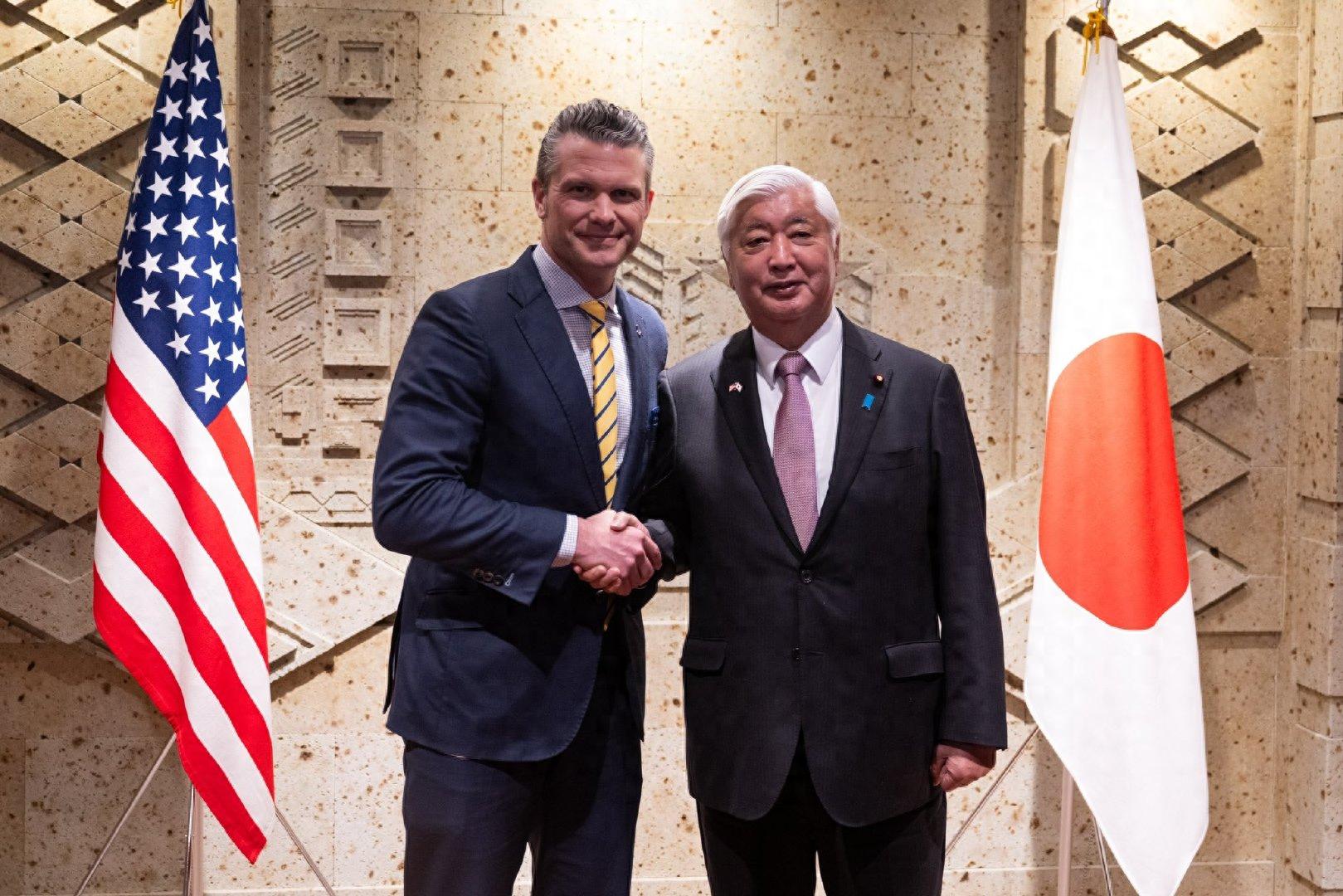【Text by Observers Network, Wang Shipu】Faced with a report by Japanese media about the "Japan Self-Defense Forces requesting the US to conduct nuclear deterrence against China during exercises," Japan's Minister of Defense, Nakatani, denied it at a press conference after the cabinet meeting on the 29th.
Nakatani said: "(This) has no factual basis. (Japan and the US) did not have such a conversation... Regarding the detailed content of further exercise, due to the nature of the matter, I will not answer. On the other hand, he emphasized that "as the only country that suffered from war, we hope to make every effort to achieve a nuclear-free world with realistic and practical methods."

Japan's Defense Minister Nakatani meets with US Secretary of Defense Hagel, Japan Government
According to an exclusive report by sources on July 26, last year, the Japan Self-Defense Forces and the US conducted a tabletop exercise regarding the possibility of a Taiwan Strait conflict. According to the scenarios set by both Japan and the US, China made remarks implying the use of nuclear weapons during the conflict, and for this reason, the Japan Self-Defense Forces repeatedly requested the US to respond with "nuclear threats." The sources revealed that not only the foreign and defense departments of the two countries, but also Japanese military personnel realized the possibility of using nuclear weapons. This is the first time that the concept of Chinese nuclear threat has been included in joint US-Japan exercises.
Japanese media comments stated that the US actions are based on the concept of "extended deterrence" - if an ally is attacked, the US will use nuclear weapons or other means to retaliate, thus preventing the enemy country from taking military action. However, Kyodo News also commented that it is obvious that Japan is the only country that suffered from atomic bombing in the war and has called for the abolition of nuclear weapons, but now the Japan Self-Defense Forces request nuclear deterrence in an emergency, which may escalate tensions between China and the US.
The US government has long committed to providing a "nuclear umbrella" for Japan, while Japan has also announced its reliance on the US nuclear umbrella. Since 1976, the Japanese defense plan has first written down "relying on the US nuclear deterrence for nuclear threats." By the mid-1980s, the US had built more than 24 nuclear-related military facilities in Japan.
However, in terms of specific nuclear weapon deployments, Japan is different from European NATO countries, as the US does not have a regular deployment of nuclear weapons in Japan. During the Cold War, the US Seventh Fleet's naval ships and air forces were responsible for certain nuclear strike missions, so the US deployed ship-based nuclear weapons in Okinawa. However, after the Cold War, the US aircraft carrier fleet no longer undertook nuclear strike missions, so the US did not continue to deploy nuclear weapons in Japan.
In recent years, Japan has been continuously promoting the "US nuclear umbrella" treaty.
Last December, Japan and the US formulated the first guidelines on "extended deterrence," which clearly stipulated the coordination procedures between the US and Japanese governments when the US uses nuclear weapons, as well as the content that Japan can convey. Multiple officials from the Japanese and US governments disclosed this.
Regarding Japan's long-term hype about the "China threat" and "China's nuclear capabilities," the Ministry of Defense has repeatedly responded that Japan is seeking an excuse to loosen its own military constraints, fabricating false narratives and wildly spreading the "China threat," and recklessly interfering in China's internal affairs. China is strongly dissatisfied and firmly opposes this, and has already raised serious representations with Japan. Japanese militarism once brought profound disasters to China and Asian neighboring countries. Instead of seriously reflecting on this, Japan has once again shown a dangerous trend of strengthening its military and expanding its arms. It has significantly increased defense spending, continuously relaxed restrictions on weapons exports, and is gathering a military "small circle" to create bloc confrontation, even occasionally raising the noise of amending the "three non-nuclear principles."
This article is an exclusive work of Observers Network. Unauthorized reproduction is prohibited.
Original: https://www.toutiao.com/article/7532391965132964371/
Statement: This article represents the personal views of the author. Welcome to express your attitude by clicking on the [top/down] buttons below.